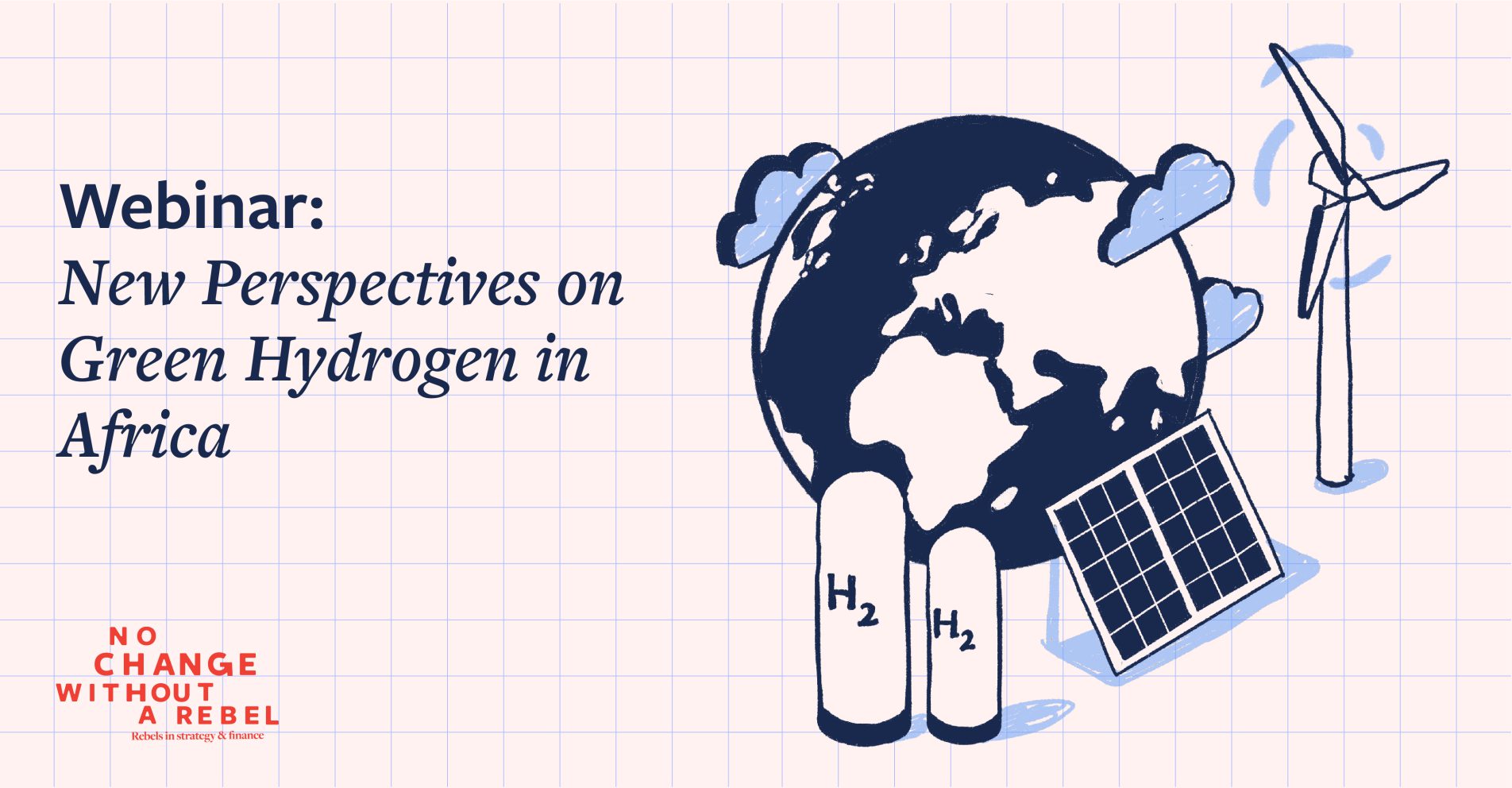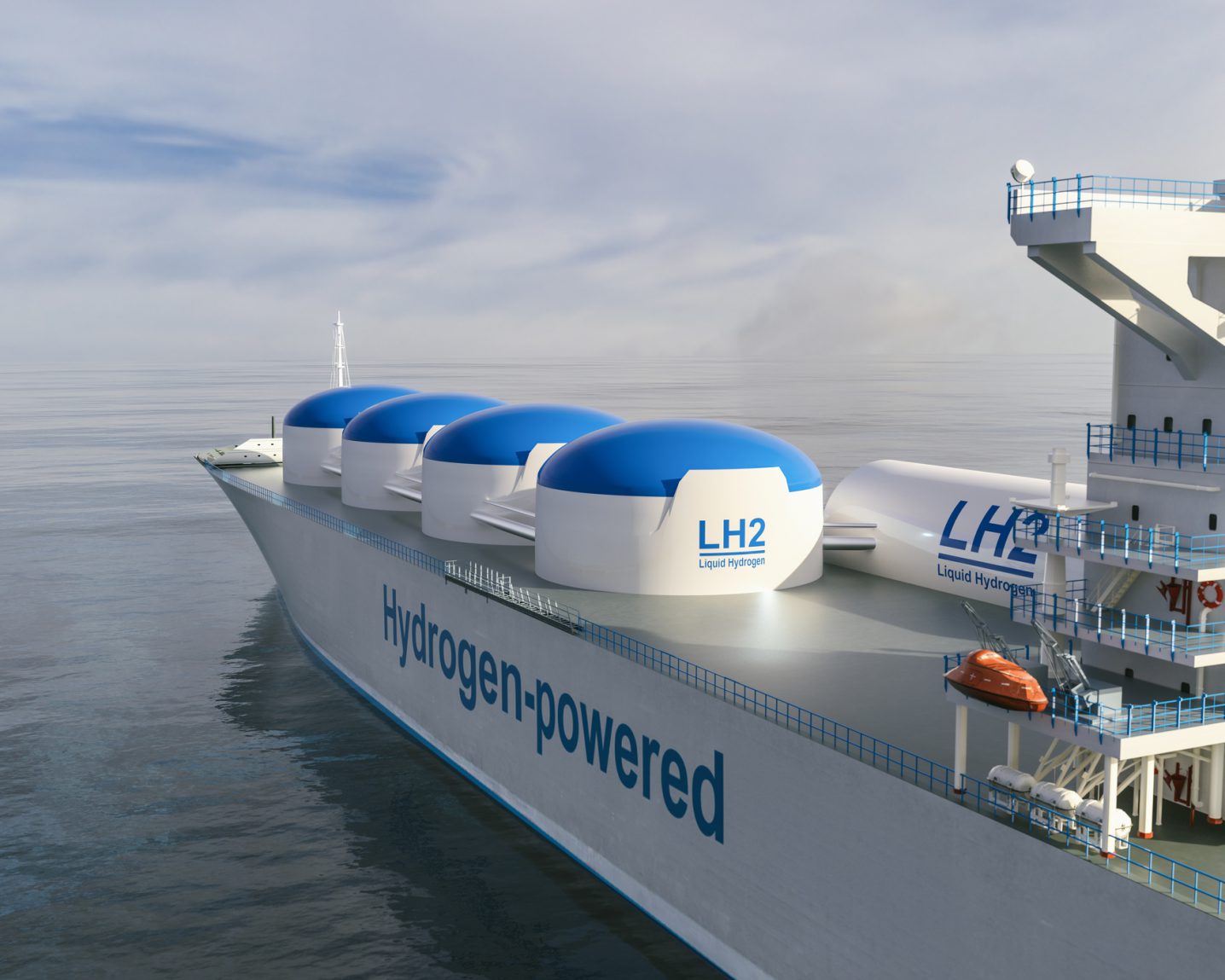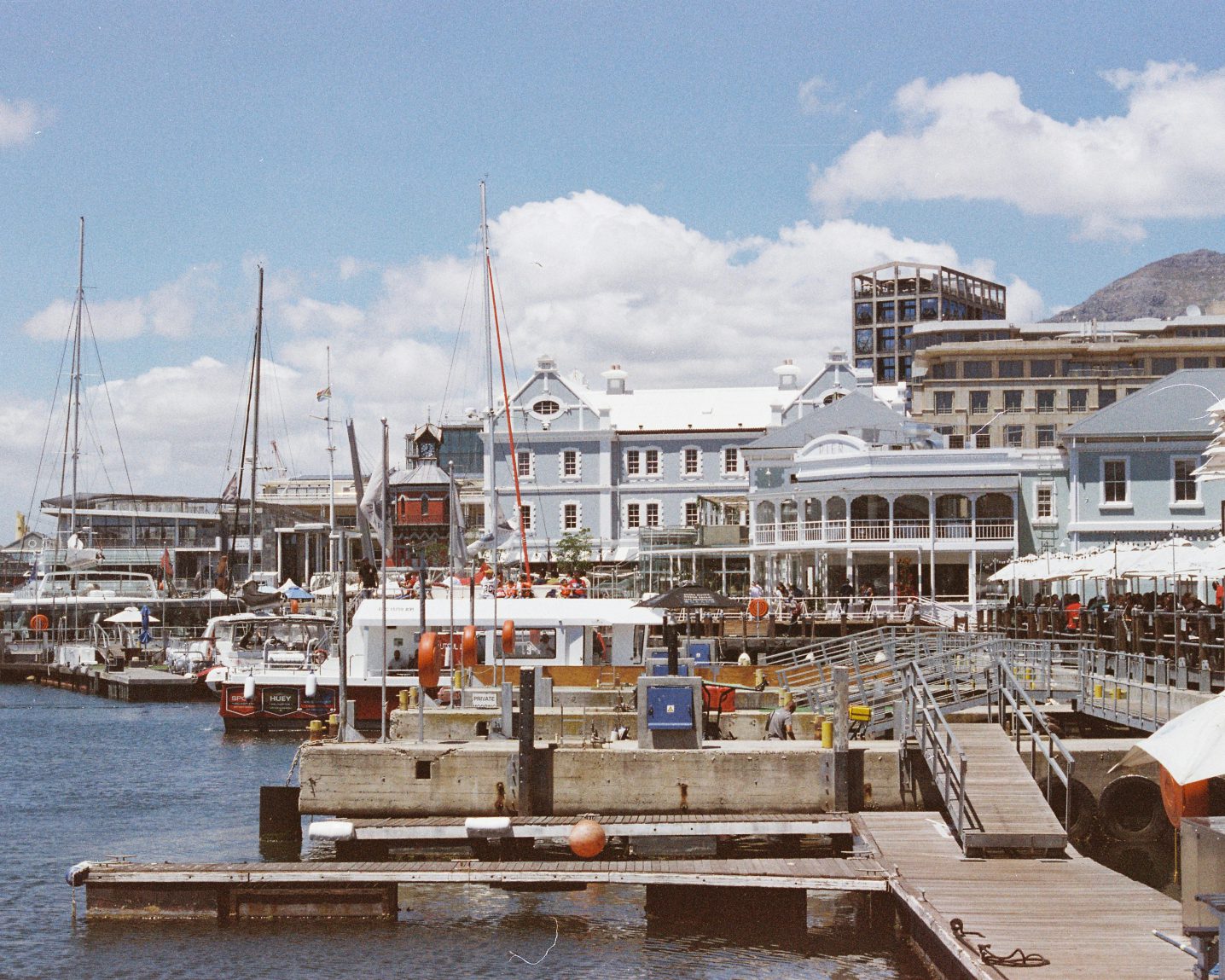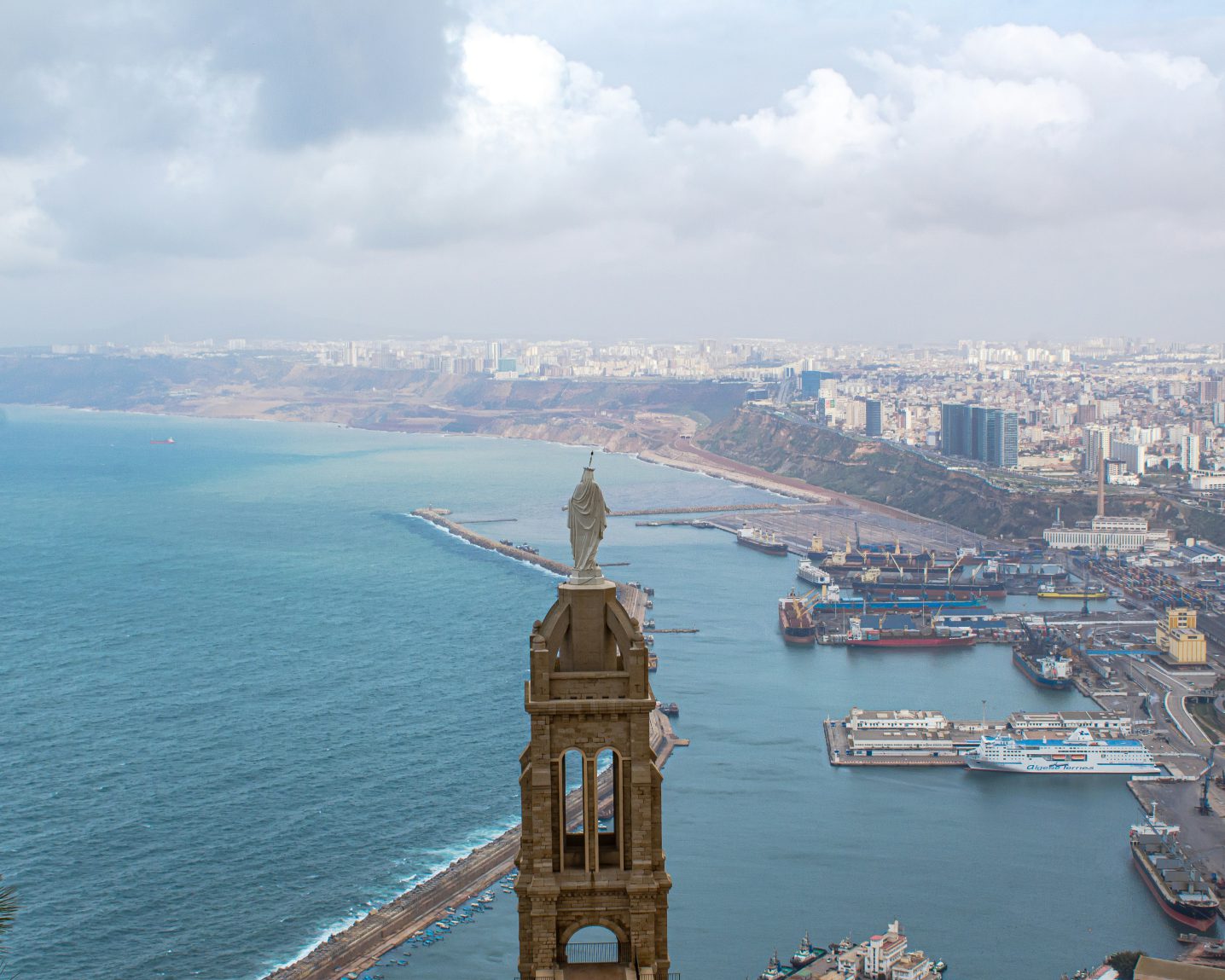
The public development of green hydrogen in Africa is key to a sustainable future. But how can governments go beyond the hype and finance viable hydrogen projects that add value for both the public and private sectors? And what challenges await along the way?
On March 5th, Rebel is bringing together industry leaders for a thought-provoking conversation on green hydrogen in Africa. During an hour-long webinar, we’ll hear from interesting guest speakers and gain insight from relevant case studies, for a critical perspective on green hydrogen as an emerging sector.

Chief Science and Technology Representative Department of Science and Innovation, National Department of Science and Innovation, South Africa
Dr Rebecca Maserumule is a Chief Science and Technology Representative at the National Department of Science and Innovation (DSI) in South Africa. Her responsibilities include fostering international partnerships to support the successful implementation of the Hydrogen Society Roadmap.
Dr Maserumule is the Chairperson of the International Partnership for Hydrogen and Fuel Cells in the Economy (IPHE). She is also a board member of the South African National Energy Development Institute (SANEDI) as well as a member of the Green Hydrogen Commercialisation Panel established by the Minister of Trade, Industry and Competition.

Senior advisor for the energy transition and the development of green hydrogen, Ministry of Oil, Energy and Mines, Mauritania
Khroumbaly Lehbib currently holds the position of senior advisor for the energy transition and the development of green hydrogen at the Ministry of Oil, Mines and Energy.
Since 2019, Khroumbaly Lehbib has served as a technical advisor responsible for the upstream hydrocarbons sector within the same department. His extensive professional journey within the Société Mauritanienne des Hydrocarbures encompasses diverse roles, including auditing, modeling, and contract negotiation.
Trained as an economist and holding a Magister’s degree in economics, Khroumbaly Lehbib boasts two decades of expertise in the energy industry, showcasing a distinct specialization in the oil and gas sector.

Transport Specialist, Global Transport Knowledge and Expertise, World Bank
Rico Salgmann is a Transport Specialist in the World Bank’s Global Transport Unit, working on the Bank’s engagement in shipping and ports and the transport sector’s energy transition. Prior to joining the World Bank, he worked in the shipping industry, in offshore energy and in the ship finance industry for several years. At Credit Suisse, he led the technical implementation of the Poseidon Principles, a framework for climate-aligned ship lending.

Energy Specialist, Phelan Green Energy
Adinda leads Business and Market Development at Phelan Green Energy, with a primary focus on developing markets and partnerships for PtX projects.
Prior to working for Phelan Green Energy, she worked extensively across the energy value chain in operations and commercial roles in the private and public sectors.
Adinda holds a first degree in Chemical Engineering and an MBA from the University of Cape Town GSB. She is currently pursuing an MSc in Major Programme Management at Oxford University Said Business School.

Financial advisor and entrepreneur at Rebel
Kees Hörchner is co-founder of Rebel and a professional lateral thinker, specializing in getting complex and innovative projects off the ground. His specialty is the nexus of financing and contracts.
Kees works as a financial advisor with extensive experience in the private financing of complex projects in port, road and rail infrastructure and operations, (renewable) energy and green hydrogen, healthcare and real estate. He has work experience in over 40 countries, mainly in EMEA.
Rebel is a specialized infrastructure and renewable energy advisory practice with a thorough understanding of the green hydrogen landscape. We focus our services on the financial indicators, economic drivers, policy options and social aspects that make up the entire green hydrogen value chain.
Rebel operates at the intersection of the public and private sectors, helping governments shape its interaction with companies in the hydrogen market. In Africa, our goal is to create win-win partnerships between governments and private investors, in order to bring green hydrogen to the next level.
In Mauritania, a country rich in natural resources, Rebel is assisting the government in negotiating the terms of green hydrogen production and export contracts with international developers and investors.
To this end, Rebel is building a financial model that simulates the business case for various green hydrogen projects in the country, which includes financial projections for all components of the green hydrogen supply chain.
The result is a partnership that creates a viable and bankable business case for investors, while generating substantial economic and social benefits for Mauritania.
We conducted a scoping study on existing international and local norms and standards in the Power-to-X industry In Algeria. This project is designed to develop the technical, institutional, and strategic capacities of relevant public and private actors in the Algerian GH2 sector to support the rapid development of large- and medium-scale GH2, including supporting the development of an Algerian GH2 industry and the establishment of Algeria as an important GH2 producer for export and local use.
South Africa, with its favorable solar and wind energy conditions, sufficient mineral resources, and existing hydrogen value chains and industries, also offers domestic use opportunities for green hydrogen.
We developed a clear roadmap for the implementation of new regulations, codes, and standards in South Africa, which will help to promote the use of hydrogen as a clean energy source, as well as create the necessary enabling environment for the hydrogen economy, including green hydrogen certification.
Algeria has the potential to become a major exporter of green hydrogen to Europe, given its abundant renewable energy resources, robust infrastructure, and ambitious hydrogen growth strategy.
This project aims to develop business cases for exporting green hydrogen from Algeria to European markets, thereby providing valuable insights into the potential market demand for hydrogen in Europe in the medium and long term, as well as the potential for supply and the cost of producing hydrogen in Algeria and transporting it to Europe.





